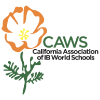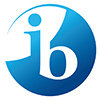International Baccalaureate schools like AURA consider languages to be a key component of developing intercultural people: “As a requirement of the DP curriculum, every student learns at least one additional language” (IBO.org). At AURA, we currently offer Arabic with plans to add Spanish this coming year.
One of our students shared his experiences with learning Arabic, noting that it helped him understand Arabic culture better, enhanced his future employment opportunities, improved his cognitive skills, and enabled him to relate cross-culturally. These benefits highlight the significant value of learning a new language.
To truly understand another culture, it is important to learn its language. This helps us see the strengths and weaknesses of our own culture and become more open-minded by considering different ways to achieve life goals.
According to the Economist (Oct. 18, 2018), Arabic has 313 million speakers, is an official language of 25 countries, and is one of six official languages of the United Nations. As with understanding cultures in general, if we want to do business at more than a superficial level, we need to use the language of the businessperson.
Research by Viorica Marian and Anthony Shook in the journal Cerebrum (October 31, 2012) highlights the cognitive benefits of bilingualism. They found that bilingual individuals often have better attention and task-switching abilities because they can inhibit one language while using another. Bilingualism also offers benefits throughout life: young bilingual children can better adjust to environmental changes, and bilingual seniors may experience less cognitive decline.
In our diverse society, cross-cultural communication skills are essential. For example, in nursing, culturally competent care is linked to improved patient outcomes. Understanding and addressing cultural factors that influence health behaviors, treatment adherence, and health disparities enable nurses to design more effective care plans and interventions (nurses.co.uk). By becoming bilingual, our students are becoming better communicators and thinkers, contributing to building a better world.
At AURA, we are committed to equipping our students with the skills needed to thrive in a globalized world, and our focus on language learning is a vital part of this mission.
One of our students shared his experiences with learning Arabic, noting that it helped him understand Arabic culture better, enhanced his future employment opportunities, improved his cognitive skills, and enabled him to relate cross-culturally. These benefits highlight the significant value of learning a new language.
To truly understand another culture, it is important to learn its language. This helps us see the strengths and weaknesses of our own culture and become more open-minded by considering different ways to achieve life goals.
According to the Economist (Oct. 18, 2018), Arabic has 313 million speakers, is an official language of 25 countries, and is one of six official languages of the United Nations. As with understanding cultures in general, if we want to do business at more than a superficial level, we need to use the language of the businessperson.
Research by Viorica Marian and Anthony Shook in the journal Cerebrum (October 31, 2012) highlights the cognitive benefits of bilingualism. They found that bilingual individuals often have better attention and task-switching abilities because they can inhibit one language while using another. Bilingualism also offers benefits throughout life: young bilingual children can better adjust to environmental changes, and bilingual seniors may experience less cognitive decline.
In our diverse society, cross-cultural communication skills are essential. For example, in nursing, culturally competent care is linked to improved patient outcomes. Understanding and addressing cultural factors that influence health behaviors, treatment adherence, and health disparities enable nurses to design more effective care plans and interventions (nurses.co.uk). By becoming bilingual, our students are becoming better communicators and thinkers, contributing to building a better world.
At AURA, we are committed to equipping our students with the skills needed to thrive in a globalized world, and our focus on language learning is a vital part of this mission.



















